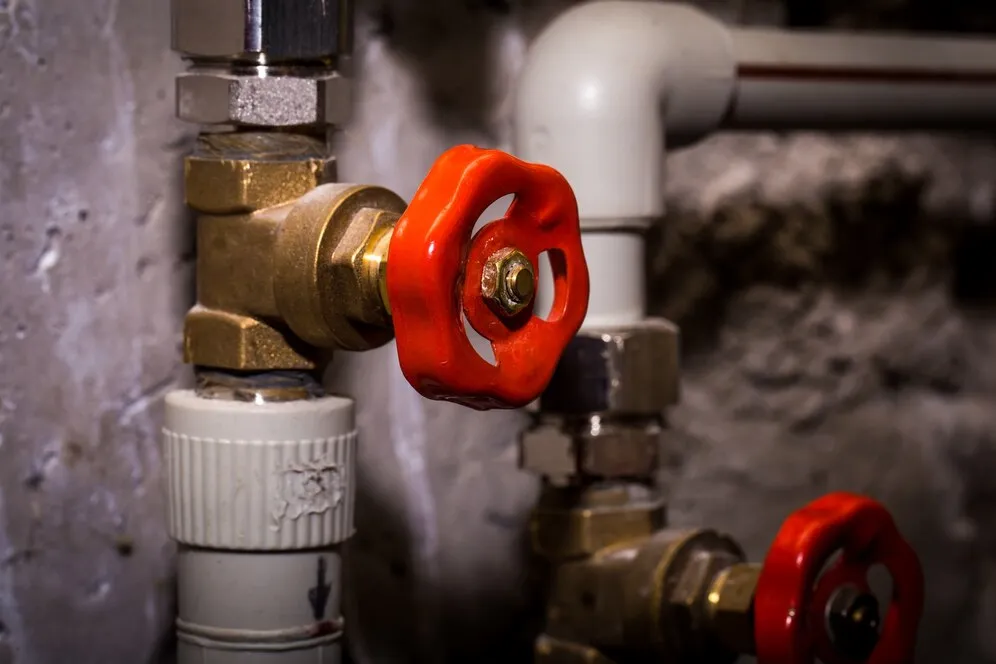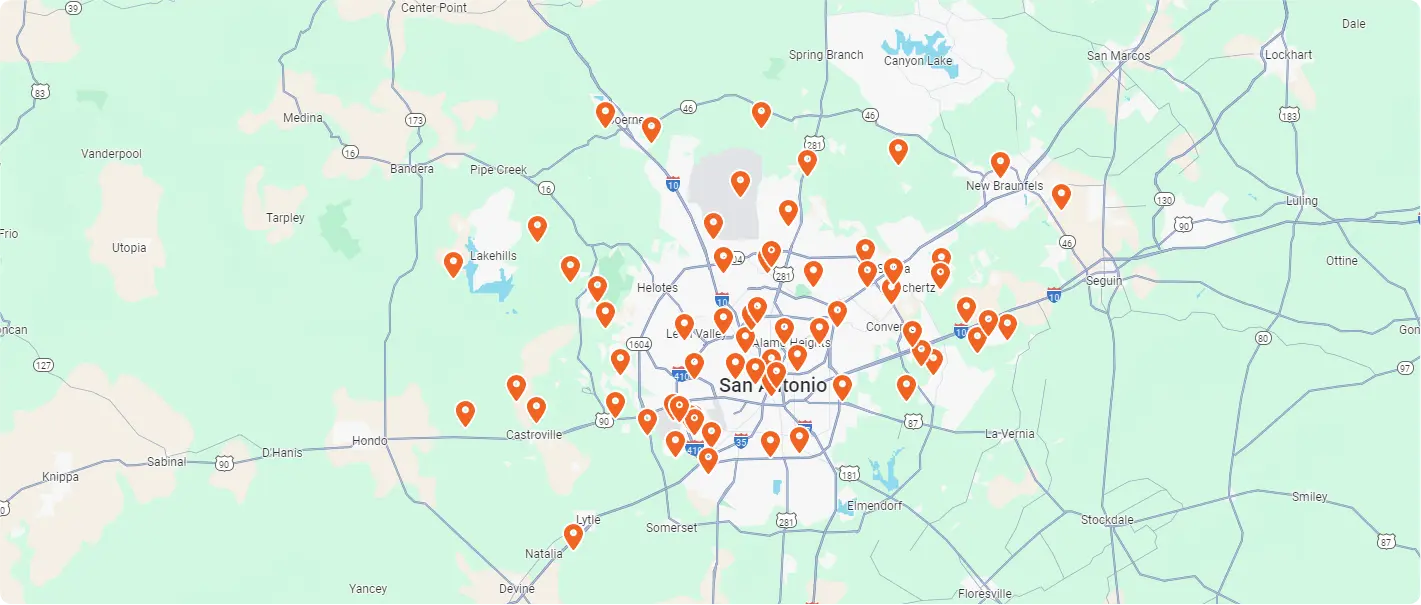Gas Line Installation and Repair in San Antonio, TX
Safe gas line installation and repair in San Antonio, TX. Licensed pros handle new lines, leaks, and service. Ensure safety. Contact us!

Scroll down to discover more
Gas Line Installation and Repair in San Antonio, TX
Gas lines are a critical, yet often overlooked, part of your home's infrastructure, delivering fuel for essential appliances like furnaces, water heaters, stoves, and dryers. While incredibly convenient, natural gas also presents potential hazards if not handled by qualified professionals such as Roadrunner Plumbing & Air. Proper gas line installation San Antonio, TX and maintenance are paramount for the safety of your family and property. In San Antonio and surrounding areas, adhering to strict local codes and safety standards is not just a best practice, it's a legal requirement.
Why Professional Gas Line Service is Essential
Working with natural gas lines is not a do-it-yourself project. Improper installation or repair can lead to dangerous leaks, fires, or even explosions. Licensed and experienced plumbing professionals possess the necessary knowledge, training, and equipment to safely work with gas lines, ensuring every connection is secure and every installation meets stringent safety regulations. Hiring a professional service provides peace of mind knowing that your gas system is installed or repaired correctly and safely.
Our Comprehensive Gas Line Services in San Antonio
We offer a full range of expert plumbing services related to gas lines for homes and businesses throughout San Antonio:
- Gas Line Installation: Planning and installing new gas lines to supply fuel to new appliances, outdoor kitchens, fireplaces, or other gas-powered features. This includes careful routing, trenching (if needed for outdoor lines), and connection work.
- Gas Line Repair: Detecting and fixing leaks or damage in existing gas lines. This requires specialized equipment to pinpoint the exact location of the problem and precise techniques to make durable, safe repairs.
- Gas Line Replacement: Replacing old, damaged, or improperly installed gas lines with new, compliant materials.
- Gas Line Rerouting/Extension: Modifying existing gas lines to accommodate renovations, appliance relocation, or adding new gas outlets.
- Connecting New Gas Appliances: Safely connecting new gas-powered appliances, such as water heaters, ovens, dryers, or furnaces, to your existing gas supply.
- Routine Inspection and Maintenance: Performing checks to ensure gas lines are in good condition, free of leaks, and properly supported and protected.
Recognizing the Signs of a Gas Leak
Natural gas is odorless, colorless, and tasteless. However, utility companies add a substance called mercaptan to give it a distinct, rotten-egg smell. This smell is often the first and most crucial indicator of a leak. Other potential signs include:
- A hissing or blowing sound near a gas line or appliance.
- Visible damage to a gas line, such as cracks or corrosion.
- Dead or dying vegetation over an underground gas line.
- Physical symptoms like dizziness, nausea, headaches, or fatigue when indoors.
- An unexplained increase in your gas bill.
Urgent! What to Do if You Suspect a Gas Leak:
If you smell gas or suspect a leak, safety is the absolute priority. Take immediate action:
- Leave the area immediately. Get everyone, including pets, out of the building or away from the suspected leak location.
- Do NOT use anything that could create a spark. This includes light switches, cell phones (until you are safely away), appliances, or vehicles. Do not light matches or lighters.
- Do NOT try to locate or stop the leak yourself.
- Once you are a safe distance away, contact your gas utility provider's emergency line and then a qualified plumber.
The Gas Line Installation Process in San Antonio
Installing a new gas line is a multi-step process that requires careful planning, adherence to codes, and expert execution. When you work with the professionals at Roadrunner Plumbing & Air, here's a general idea of what the process involves:
- Initial Consultation & Planning: A technician assesses your needs, the location of the new appliance or feature, and plans the most efficient and safest route for the new line. This includes calculating the correct pipe size based on the appliance BTU requirements and the distance to ensure adequate gas flow.
- Permitting & Code Compliance: Any new gas line installation or significant modification requires obtaining permits from the relevant authority, typically the City of San Antonio's Development Services Department (DSD) or Bexar County, depending on your location. Professionals are familiar with the local process and ensure all work complies with the current International Fuel Gas Code as adopted and amended by the City of San Antonio and the State of Texas. This includes requirements for materials, joining methods, support, and burial depth for outdoor lines.
- Material Selection: Gas lines are commonly installed using black iron pipe or Corrugated Stainless Steel Tubing (CSST). The choice depends on the application, location, and local code requirements. Each material has specific installation procedures and fittings designed for safety and durability.
- Installation Work: The planned route is prepared. For outdoor lines, this may involve trenching. For indoor lines, this involves running pipes through walls, ceilings, or crawl spaces. Pipes are cut, threaded (for black iron), or connected using specialized fittings for CSST. Connections are made to the existing gas supply and the new appliance location.
- Testing: Once the physical installation is complete, the line must be tested for leaks. This is typically done using a pressure test, where the line is pressurized with air and monitored to ensure no pressure loss occurs over a specific time period. This crucial step verifies the integrity of every connection.
- Final Inspection: After successful testing by the installer, the local permitting authority (City or County inspector) performs a final inspection to verify that the installation meets all applicable codes and standards before the line can be put into service.
Navigating the local permitting and inspection process is a key part of professional gas line service in San Antonio, ensuring all work is documented and approved by the governing bodies.
The Gas Line Repair Process
Diagnosing and repairing a gas leak is a precise task. Professionals use advanced techniques for leak detection + repair. This often involves using electronic leak detectors, manometers for pressure testing, and sometimes even thermal imaging to locate the source of a leak quickly and accurately. Once the leak is found, the damaged section of the line is carefully isolated and repaired or replaced using appropriate materials and techniques. Following the repair, the line is pressure tested again to confirm the leak is sealed before it is returned to service.
Appliances Requiring Gas Lines
Many common household and commercial appliances rely on natural gas for efficient operation:
- Furnaces and heating systems
- Water Heaters, both conventional and tankless
- Gas ranges and ovens (Kitchen Plumbing)
- Gas clothes dryers
- Gas fireplaces and log sets
- Outdoor grills and kitchens
- Pool and spa heaters
- Standby generators
Connecting or servicing any of these appliances often involves working directly with the gas line.
Factors Influencing Gas Line Service Cost
The cost of gas line installation or repair in San Antonio can vary depending on several factors:
- Scope of Work: Whether it's a small repair, extending an existing line a short distance, or installing a completely new, long line.
- Length and Routing: Longer lines and those requiring complex routing (around obstacles, through multiple walls, under slabs) will cost more.
- Materials Used: The type of piping material (black iron vs. CSST) can affect costs.
- Complexity of the Job: Factors like needing to trench for outdoor lines, working in confined spaces, or repairing difficult-to-access leaks add to complexity.
- Permit and Inspection Fees: These are required costs associated with ensuring the work is done safely and to code.
- Appliance Type: Connecting certain appliances may require specific fittings or considerations.
The qualified service providers at Roadrunner Plumbing & Air can provide an estimate after assessing the specific requirements of your project. Financing Options may also be available to help manage costs.
Local San Antonio Expertise
Understanding the specific nuances of plumbing and gas codes in San Antonio and Bexar County is crucial. Experienced local professionals are familiar with the requirements of the City's Development Services Department and Bexar County's permit processes, helping to ensure your project meets all local standards and passes inspection without delays. This local knowledge is invaluable for a smooth and compliant installation or repair.
Frequently Asked Questions About Gas Lines
Q. How much does gas line installation cost?
A. The cost varies significantly based on the factors mentioned above (length, routing, complexity, materials). A professional assessment is necessary to provide an accurate estimate for your specific project.
Q. Do I need a permit in San Antonio for gas line work?
A. Yes, almost all new gas line installations, extensions, or significant repairs require a permit from the local authority (City of San Antonio or Bexar County) and subsequent inspection to ensure compliance with safety codes.
Q. Can I install my own gas line or appliance?
A. No, due to the inherent dangers of working with natural gas, Texas state law and local San Antonio codes require that gas line work be performed by licensed plumbing or mechanical contractors. Attempting DIY gas work is highly dangerous and illegal.
Q. What are the different types of gas line pipes?
A. Common materials include black iron pipe (traditional, durable for various applications) and Corrugated Stainless Steel Tubing (CSST, flexible and easier to install in some situations, requires specific bonding and grounding). Copper pipe is also used in some specific low-pressure applications, though less common for main distribution lines.
Q. Who is responsible for the gas line from the street to my house?
A. Generally, the gas utility company (like CPS Energy in San Antonio) is responsible for the gas line up to the meter. The homeowner is typically responsible for the gas line from the meter into and throughout their property.
Q. How deep do gas lines need to be buried in Texas?
A. Specific burial depth requirements are outlined in plumbing and fuel gas codes. Typically, residential gas lines must be buried at least 12 inches deep, and lines under driveways or streets require greater depth (often 18 inches or more). Local amendments in San Antonio or Bexar County may have specific requirements that must be followed.
Q. How often should gas lines be inspected?
A. While there's no mandated routine inspection frequency for residential gas lines by authorities after the initial installation approval, periodic checks are recommended, especially if you suspect an issue, are adding appliances, or have older piping. Professionals can assess the condition of your lines during other plumbing services.
Q. What are the signs of a gas appliance not getting enough gas?
A. Signs can include pilot lights that frequently go out, burners that produce yellow or orange flames instead of blue (indicating incomplete combustion), or appliances that don't heat as effectively as they should. This could indicate an issue with the gas supply line or the appliance itself.
Q. Do plumbers or HVAC technicians handle gas lines?
A. Licensed plumbers are qualified to work on gas lines. Some licensed HVAC technicians may also be qualified, particularly for connecting appliances like furnaces. It's important to ensure the professional you hire holds the appropriate license and certifications for gas work. (About Us provides information on our licensing.)
Q. Is natural gas or propane used in San Antonio?
A. The primary gas supply in most areas of San Antonio is natural gas provided by CPS Energy. Propane is used in areas without access to the natural gas main, requiring a different storage and delivery system. Professionals are trained to work with both types of gas systems, understanding the unique properties and requirements of each.
Working with gas requires expertise and strict adherence to safety standards. Ensuring your gas lines are properly installed, maintained, and repaired by licensed professionals in San Antonio, TX, protects your home and everyone in it.
Financing options
flexible financing solutions

We offer convenient financing options through Wells Fargo, making it easier to invest in plumbing or HVAC upgrades with flexible payments that fit your budget. Your comfort, safety, and satisfaction are always our top priorities—every service, every time.
Apply for Financing
We offer flexible financing options through GreenSky to help you move forward with essential plumbing or HVAC upgrades without delay. With quick approvals and affordable monthly payments, you can get the service you need while staying within budget.
Apply for Financing
We offer financing through Synchrony to make it easier to get the plumbing or HVAC service you need without delay. With simple application steps and convenient monthly payments, you can manage costs while enjoying reliable home comfort.
Apply for Financing
where we serve
Service areas

.png)